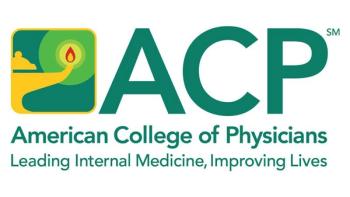
- Ophthalmology Times Europe September 2022
- Volume 18
- Issue 07
Poor post-pandemic follow-up care in glaucoma patients prompts concern
Following the lockdown due to COVID-19, investigators highlight the need to re-assess policies on patient follow-up and establish new approaches to provision of care for elderly patients.
Reviewed by Ms Catherine Wang.
A high percentage of patients diagnosed with glaucoma missed follow-up evaluations 15 months after glaucoma appointments had been cancelled during the COVID-19 pandemic in the United States, according to investigators. After examinations resumed, the researchers found that many of the established patients who did not return for follow-up evaluations tended to be elderly.
A retrospective chart review study was conducted by Ms Catherine Wang, of the University of Illinois College of Medicine at Chicago, Illinois, United States—along with colleagues from the Illinois Eye and Ear Infirmary, Department of Ophthalmology and Visual Sciences at the University of Illinois at Chicago. They examined the percentages of patients who returned for evaluations at 6 months, 12 months and later, following cancellation of their examinations.
The study also sought to determine the demographic and socioeconomic factors related to the patients who did not return for evaluation after 15 months, as well as the effects that the lack of follow-up care had on patients with glaucoma.
Chart review findings
The investigators found that 1,057 appointments had been cancelled between 15 March and 30 April 2020. More than half (55.8%) were appointments intended for established glaucoma patients, whereas 12.6% were for new, as-yet-unevaluated patients.
Of those diagnosed with glaucoma, 56.8% returned for a follow-up visit within 6 months, 65.9% returned within 12 months and 69.6% returned within 15 months. At the 15-month mark, 30.4% of the established patients had not returned for follow-up visits following the lockdown.
Age seemed to be the predominating factor in these results, whilst travel and socioeconomic factors did not. When the ages of the patients in the glaucoma service were analysed, those who did not attend a follow-up examination tended to be older, according to Ms Wang.
Those who were 82 years and older were disproportionately represented. However, the area of residence was not a significant factor. Ms Wang also noted that outreach is needed to determine whether the patients sought eyecare from other facilities.
Ms Wang pointed out that the American Academy of Ophthalmology Preferred Practice Patterns1 state that patients with glaucoma should be evaluated by an ophthalmologist at a minimum of every 12 months. “Our study showed that a high rate of established patients missed follow-up visits at 15 months after examinations were cancelled because of COVID-19 mandates,” she said.
Ms Wang emphasised that with future potential outbreaks of the virus, examinations may again decrease, and the consequences highlighted by the current study should prompt an evaluation of policies about patient follow-up and the need for establishing novel approaches to provision of care for the vulnerable elderly population.
Catherine Wang, MS
E: [email protected]
This article is adapted from Ms Wang’s presentation at the 2022 American Glaucoma Society Annual Meeting in Nashville, Tennessee, US. She has no financial interest in this subject matter.
Reference
Gedde SJ, Vinod K, Wright MM, et al; American Academy of Ophthalmology Preferred Practice Pattern Glaucoma Panel. Primary open-angle glaucoma preferred practice pattern. Ophthalmology.2021:128:P71-150.
Articles in this issue
over 3 years ago
A new lens option for enhanced monovision performanceover 3 years ago
Congress of the ESCRS reaches milestone ageNewsletter
Get the essential updates shaping the future of pharma manufacturing and compliance—subscribe today to Pharmaceutical Technology and never miss a breakthrough.




























